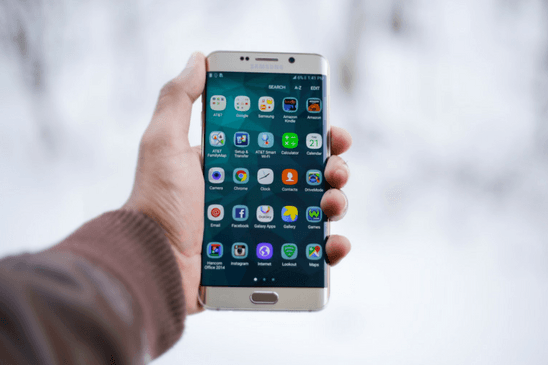London: Scientists have developed a smartphone app that can help improve pain control and reduce opiate painkiller use after surgery.
Patients who underwent total knee replacement and used the app called ‘PainCoach’ at home after surgery consistently reduced the use of opioids and lowered pain scores, researchers said.
“These are important findings given the current demands on the healthcare system and the growing misuse of prescription painkillers worldwide,” said Amar Sheombar from ‘Kliniek ViaSana’ clinic in the Netherlands.
“Few clinically-tested mobile apps exist with clear measurable goals to guide patients in pain control and opiate use at home after surgery,” Sheomber said.
The researchers randomly assigned 71 patients (aged 56-70 years) undergoing total knee replacement to the app and usual care (38 patients) or usual care alone (33) in the first two weeks at home after surgery.
The mobile app allows patients to input their pain level. Based on this information and the amount of days after surgery, the app offers advice on drug pain relief use and exercises or rest.
Questionnaires were used to establish opiate use (oxycodone) and pain levels at rest, during activity, and at night, as well as other pain drug use, experiences with exercises, pain acceptance, function, and quality of life.
Participants completed questionnaires preoperatively, daily during the first two weeks, and after one month. Amount of app use was also recorded, with ‘active use’ defined as at least 12 uses of the app over two weeks.
During the study, average Visual Analogue Scale (VAS) pain score was 23 (the scale is 0 to 100 where 100 represents the highest pain) and average opiate use across the group was less than half (0.4) of one 5 milligrammes oxycodone tablet per day.
Regular (active) use of the app led to further reduction in opiate use and improved pain control during activity and at night.
Regular app users (19 patients) reported four times faster reduction in pain during activity, six times faster reduction in pain at night, and 44 per cent less opiate and 76 per cent less gabapentin use (taken to relieve nerve pain) compared to controls.
“Knowing that 80 per cent of interactive advice is remembered may explain why regular use of the PainCoach app contributes to lower pain scores and reduced opiate use,” said Sheombar. “Digital innovations like smartphone health-care apps must empower patients and deliver patient-centric care,” he added.
PTI
